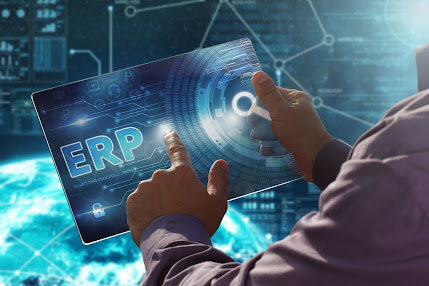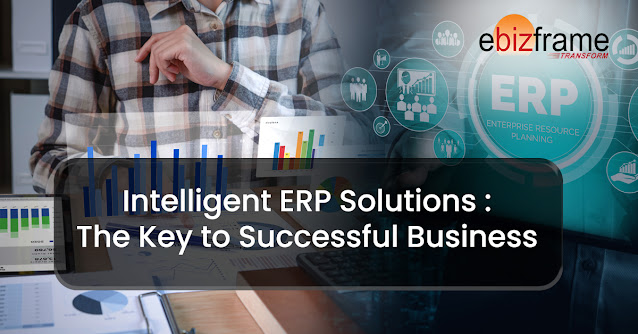5 Steps When Transitioning To A New ERP System
Are you planning to implement a new ERP System?
Well, it is easy to get excited once you have chosen a new ERP software to augment your business’s digital transformation effort. Usually, the team is all set to transit from that old system and excited about the opportunities that modern technology will bring. But very often it has been noticed that organizations rush from phase to phase in a reactive manner rather than having a structured comprehensive transition plan in place. Probably they don’t realize that the transition from selecting an ERP system to implementing an ERP system is undoubtedly the most significant aspect of their entire project. The implementation stage of your project will determine whether your plan is successful, your Return on Investment (RoI) expectations realistic, and your anticipated business benefits achievable.
Therefore, it is imperative that rather than just jumping in and spending a ton of upfront cash, it is essential to have a smooth and well-thought-out transition right from selection to its implementation. Hence, we have come up with the Top-5 critical factors which you should consider before moving to a new ERP system and make the transition successful for your business requirements:
Elucidate an Intelligible Program Plan
Generally, ERP software vendors are good at installing and configuring the software, but they are not so adept at other key components required for your project implementation to be successful. For instance, organizational change, migration of data, and business process reengineering are some of the significant areas typically not addressed by the software providers, hence your comprehensive project plan needs to fill in those gaps. Also, the suggested timeline provided by your ERP software vendor is just one input that you will alter and add to, as part of your overall transition plan.
Finalize your ERP Project Implementation Team
You must spend considerable time defining and assembling the manpower resources that will help your ERP project implementation. This should be done well in advance before the software consultants arrive. You will need to ensure that you have a team ready with documented roles and responsibilities, including a project manager, subject matter experts along with the core team. In order to avoid being dependent on simply accepting resources that your ERP vendor provides, verify all your needs and requirements with an independent ERP consultant.
Define Project Control and Direction
It is important to define checks and balances to control your project implementation so that it always stays on the defined path. You need to define how decisions are made, who approves the customization, how to manage the change of scope requests, timelines for various milestones, etc. that can make or break a project implementation mid-stream. This is very commonly ignored, so make sure that you engage your ERP consultant to help define process control and design the broad framework of the project.
Get Absorbed in Business Process Management
Your ERP software vendor might say that the New ERP software will steer your business process improvements, but that is only one part of the story. It is you and your employees that will pilot business process improvements, not your new ERP software. Your software will tell you how exactly business transactions will happen, but it will be you and your team who will define the strategy of your business operations in its future state. Hence, it is necessary to define your business processes early on, else you will end up paying technical consultants to sit and wait while your team is trying to decide the business processes which they wish to adopt to run your business.
Make a Business Change Management Plan
Having a clear strategy and plan in place is of utmost importance before the implementation begins. Make sure that you define the change in business processes and this requires an active participation of your entire core team. Eventually, it will provide the base for a comprehensive organizational change strategy.
The Bottom Line
Since you have decided to transition to a better and more contemporary ERP System do not forget to deploy the best internal and external resources. Do not rush to start the project until and unless you are well prepared, and do not be reluctant to call a time out if something doesn’t feel right. Above all, choose an ERP Solution which is equipped to handle not just your current needs but also capable of adopting to your future growth and diversification plans. The ERP Provider should have demonstrated sufficient capability and experience of transitioning from one ERP to another, seamlessly. ebizframe ERP is a Future-Ready, Next-Generation ERP which not only understands your operational needs for today but is also adaptive to your future business needs. Moreover, ebizframe is implemented by an implementation team which has extensive experience in seamlessly transitioning clients from legacy ERP and Accounting Systems across industry verticals. ebizframe ERP is a highly configurable ERP with a very short implementation cycle, thereby ensuring minimal turbulence during the phase of ERP transition. For more details, please contact: marketing@essindia.com.




Comments
Post a Comment